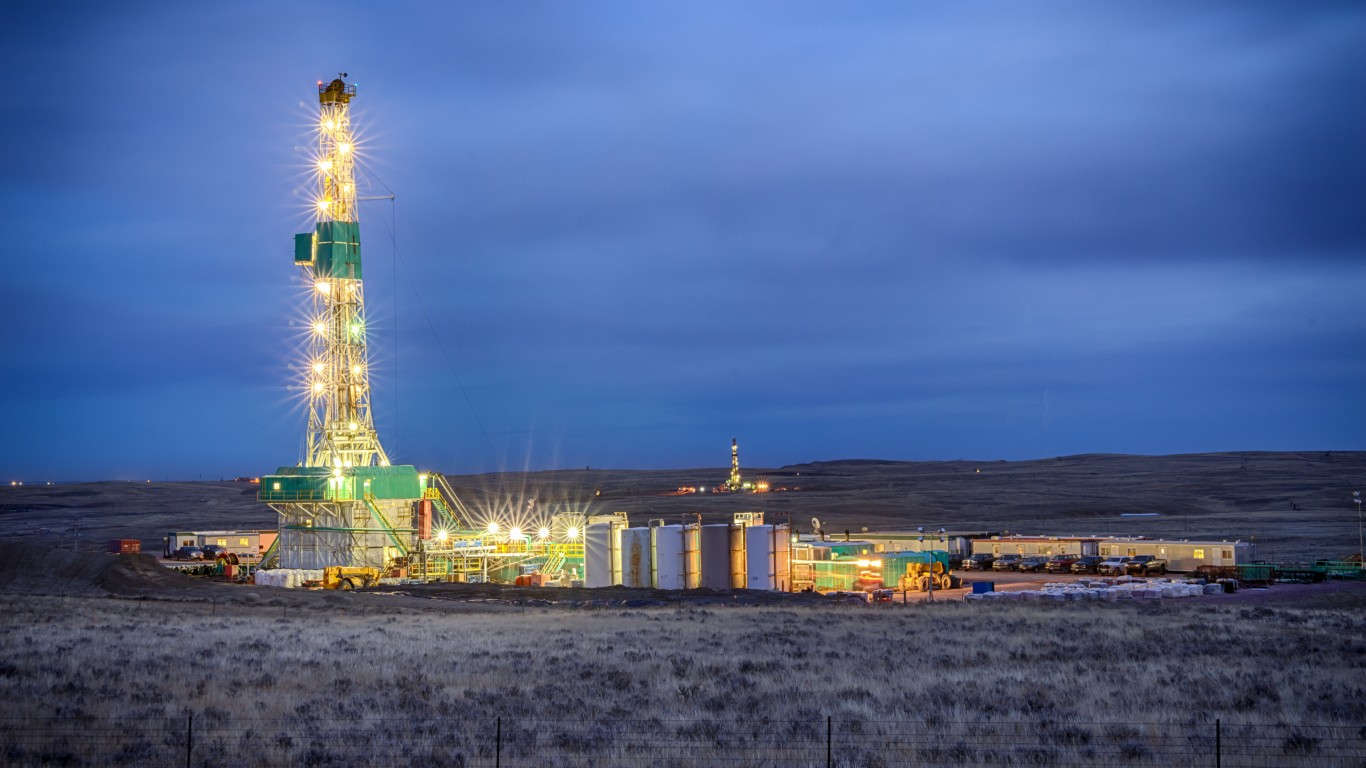
24/7 Wall St. Insights
- As interest rates fall, ultra-high-yield stocks will grow in popularity.
- Wall Street expects another 50-basis-points rate cut in 2024.
- Sit back and let dividends do the heavy lifting for a simple, steady path to serious wealth creation over time. Grab a free copy of “7 Things I Demand in a Dividend Stock,” plus get our two best dividend stocks to own today. Access two legendary, high-yield dividend stocks Wall Street loves.
Investors love dividend stocks, especially the ultra-high-yield variety, because they offer a significant income stream and have massive total return potential. Total return includes interest, capital gains, dividends, and distributions realized over time. In other words, the total return on an investment or a portfolio consists of income and stock appreciation.
For example, if you buy a stock at $20 that pays a 3% dividend, and it goes up to $22 in a year, your total return is 13%. That is, 10% for the increase in stock price and 3% for the dividends paid.
The bigger-than-expected cut of the federal funds rate the Federal Reserve dropped in September is just the start of a long process, which likely will see the benchmark rate at 3.25% by early 2026. In the meantime, passive income investors are starting to move to dividend stocks in a big way.
While the bond market and Wall Street have anticipated the rate cuts, and dividend stocks like utilities have been snapped up all year, income investors are looking to the top ultra-high-yield stocks that can replace junk bonds, utilities, and other passive income investments that have been bid higher in 2024. We have three top companies Wall Street loves that all pay at least a 13% dividend yield.
Why do we cover ultra-high-yield stocks?

While they are not suited for everybody, those trying to build strong passive income streams can do exceptionally well having some of these top companies in their portfolios. Paired with more conservative blue-chip dividend giants, investors can use a barbell approach to get passive income streams that make a significant difference.
FS KKR

This is a well-known name on Wall Street, offers a solid entry point at current levels, and pays a massive 14.13 dividend. FS KKR Capital Corp. (NASDAQ: FSK) is a business development company specializing in investments in debt securities. It seeks to purchase interests in loans through secondary market transactions or directly from the target companies as primary market investments.
The company also seeks to invest in:
- First-lien senior secured loans
- Second-lien secured loans
- Subordinated loans
- Mezzanine loans
The firm also receives equity interests in connection with debt investments, such as warrants or options for additional consideration. It also seeks to purchase minority interests in common or preferred equity in our target companies, either in conjunction with one of the debt investments or through a co-investment with a financial sponsor.
The fund may invest in corporate bonds and similar debt securities opportunistically.
The fund does not seek to invest in start-ups, turnaround situations, or companies with speculative business plans. It aims to invest in small and middle-market companies in the United States.
FS KKR seeks to invest in firms with annual revenue between $10 million and $2.5 billion. It aims to exit from securities by selling them in a privately negotiated over-the-counter market.
Mach Natural Resources

This 2023 IPO is trading below the initial offering price. Mach Natural Resources L.P. (NYSE: MNR) recently conducted a secondary offering to purchase more producing assets and will pay an estimated 13% or higher dividend.
Mach Natural Resources is an independent upstream oil and gas company focused on acquiring, developing, and producing oil, natural gas, and natural gas liquids reserves in the Anadarko Basin region of Western Oklahoma, southern Kansas, and the Texas panhandle.
The analysts at Raymond James note that Mach is led by Tom Ward, Co-Founder of Chesapeake Energy. Mach is another entrant into the E&P MLP space. It is a pure-play operator in the Anadarko Basin, leveraging its strong position (1 million net acres) to become the primary consolidator in the region.
Mach’s midstream position and lower base decline (~20%) allow the company to target a lower reinvestment rate (~30%) relative to the overall industry. In addition, it is one of the only exploration and production companies organized as a limited partnership as it is an oil and gas producer.
Prospect Capital

Hedge funds love this top business development company, and the gigantic 13.56% dividend makes it a potential total return home run. Prospect Capital Corp. (NASDAQ: PSEC) specializes in:
- Middle market, mature, mezzanine finance
- Later stage, emerging growth
- Leveraged buyouts
- Refinancing
- Acquisitions
- Recapitalizations
- Turnarounds
- Growth capital
- Development
- Capital expenditures
- Subordinated debt tranches of collateralized loan obligations, cash flow term loans, marketplace lending, and bridge transactions
It also invests in the multi-family residential real estate asset class. The fund makes secured debt, senior debt, senior and secured term loans, unitranche debt, first-lien and second-lien, private debt, private equity, mezzanine debt, and equity investments in private and microcap public businesses.
Prospect Capital focuses on both primary origination and secondary loans/portfolios. It invests in debt financing for private equity sponsors, acquisitions, dividend recapitalizations, growth financings, bridge loans, cash flow term loans, and real estate financings/investments.
The company invests in the following sectors and business silos:
- Aerospace and defense
- Chemicals
- Conglomerate and consumer services
- Ecological
- Electronics
- Financial services
- Machinery and Manufacturing
- Media
- Pharmaceuticals
- Retail
- Software
- Specialty Minerals
- Textiles and leather
- Transportation
- Oil gas and coal production
In addition to favoring materials, industrials, consumer discretionary, information technology, utilities, pipeline, storage, power generation and distribution, renewable and clean energy, oilfield services, health care, food and beverage, education, business services, and other select sectors.
Five Blue Chip Dividend Stocks to Own If You Had to Hold Them Forever
It’s Your Money, Your Future—Own It (sponsor)
Retirement can be daunting, but it doesn’t need to be.
Imagine having an expert in your corner to help you with your financial goals. Someone to help you determine if you’re ahead, behind, or right on track. With SmartAsset, that’s not just a dream—it’s reality. This free tool connects you with pre-screened financial advisors who work in your best interests. It’s quick, it’s easy, so take the leap today and start planning smarter!
Don’t waste another minute; get started right here and help your retirement dreams become a retirement reality.
Thank you for reading! Have some feedback for us?
Contact the 24/7 Wall St. editorial team.





